
Anuradhapura: The Sacred Heart of Sri Lanka
Anuradhapura, a city in Sri Lanka, is a treasure trove of ancient history and spirituality. Founded over 2,500 years ago, it served as the first capital of the island nation. The city is home to well-preserved ruins of ancient Sri Lankan civilization, making it a UNESCO World Heritage Site. Visitors are greeted with a landscape dotted with stupas, monasteries, and temples, each narrating tales of a rich, spiritual past. The city's most iconic site is the Sri Maha Bodhi, a sacred fig tree believed to be a sapling from the original Bodhi tree under which Buddha attained enlightenment. This revered tree attracts pilgrims from all over the world. Another must-visit is the Ruwanwelisaya Stupa, a magnificent white structure that stands as a testament to ancient engineering and devotion. Anuradhapura is not just about historical monuments; it also offers a serene natural environment. The city is surrounded by lush greenery and ancient reservoirs, such as the Tissa Wewa, which provide a tranquil escape from the hustle and bustle of modern life. Whether you are a history buff, a spiritual seeker, or simply in search of peace, Anuradhapura offers a unique and enriching experience.
Local tips in Anuradhapura
- Wear modest clothing when visiting temples and religious sites. Shoulders and knees should be covered.
- Visit early in the morning or late afternoon to avoid the midday heat and crowds.
- Hire a local guide to get in-depth knowledge about the historical and spiritual significance of the sites.
- Carry plenty of water and sun protection, as the climate can be quite hot and dry.
- Respect local customs and traditions, especially in sacred areas.
Anuradhapura: The Sacred Heart of Sri Lanka
Anuradhapura, a city in Sri Lanka, is a treasure trove of ancient history and spirituality. Founded over 2,500 years ago, it served as the first capital of the island nation. The city is home to well-preserved ruins of ancient Sri Lankan civilization, making it a UNESCO World Heritage Site. Visitors are greeted with a landscape dotted with stupas, monasteries, and temples, each narrating tales of a rich, spiritual past. The city's most iconic site is the Sri Maha Bodhi, a sacred fig tree believed to be a sapling from the original Bodhi tree under which Buddha attained enlightenment. This revered tree attracts pilgrims from all over the world. Another must-visit is the Ruwanwelisaya Stupa, a magnificent white structure that stands as a testament to ancient engineering and devotion. Anuradhapura is not just about historical monuments; it also offers a serene natural environment. The city is surrounded by lush greenery and ancient reservoirs, such as the Tissa Wewa, which provide a tranquil escape from the hustle and bustle of modern life. Whether you are a history buff, a spiritual seeker, or simply in search of peace, Anuradhapura offers a unique and enriching experience.
When is the best time to go to Anuradhapura?
Iconic landmarks you can’t miss
Ruwanweli Maha Seya
Discover the sacred beauty of Ruwanweli Maha Seya, an ancient Buddhist stupa that embodies Sri Lanka's rich history and spirituality.
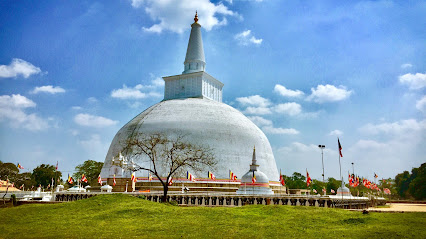
Jaya Sri Maha Bodhi
Explore Jaya Sri Maha Bodhi, a sacred Buddhist temple in Anuradhapura housing the revered Bodhi tree, offering a serene and cultural experience.
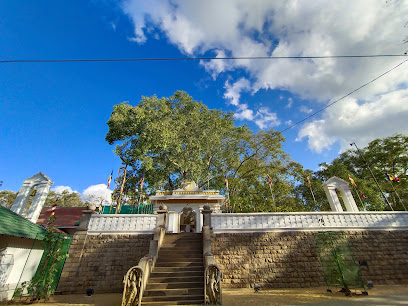
Thuparamaya
Explore the serene beauty and rich history of Thuparamaya, one of Sri Lanka's most significant Buddhist temples in Anuradhapura.
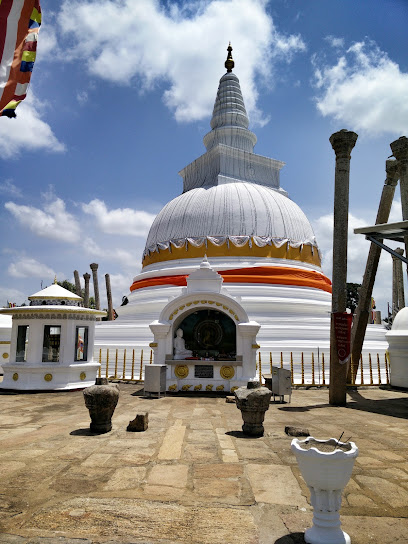
Isurumuni Royal Temple
Explore Isurumuni Royal Temple in Anuradhapura, a breathtaking blend of Buddhist and Hindu heritage with stunning rock carvings and serene landscapes.
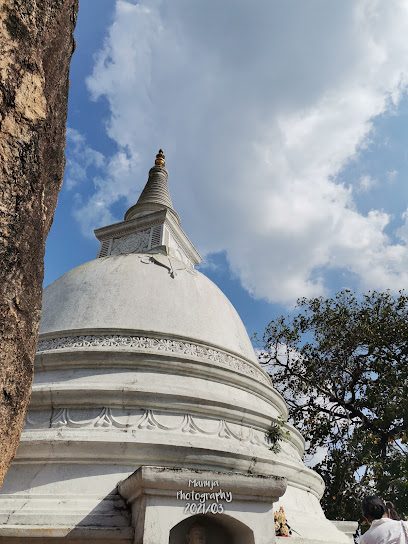
Ranmasu Uyana (Royal Park)
Discover the tranquil beauty and rich history of Ranmasu Uyana, an ancient royal park steeped in the cultural heritage of Sri Lanka.
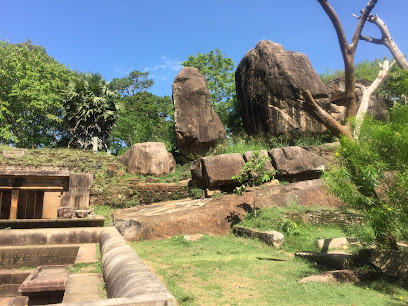
Star Gate - Ranmasu Uyana
Explore the enchanting archaeological site of Star Gate - Ranmasu Uyana in Anuradhapura, where ancient artistry meets serene beauty in Sri Lanka.
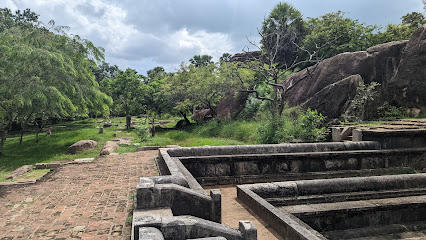
Jetavanarama Museum
Explore the Jetavanarama Museum in Anuradhapura, where ancient history and culture come to life through stunning artifacts and exhibitions.
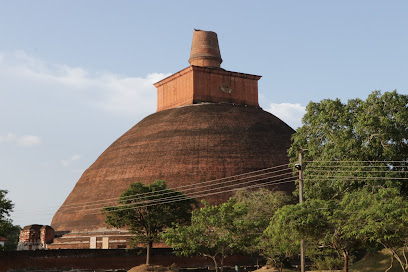
Perimiyankulama Stone Bridge
Discover the Perimiyankulama Stone Bridge, a stunning historical landmark in Anuradhapura, revealing Sri Lanka's rich architectural heritage.
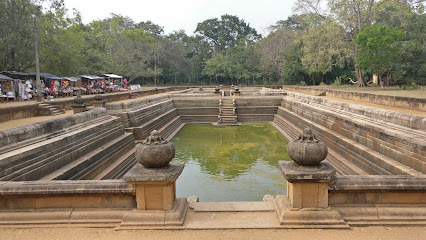
Twin ponds (කුට්ටම් පොකුණ)
Explore the serene Twin Ponds in Anuradhapura, a historical marvel that reflects ancient engineering and offers a tranquil escape into nature.
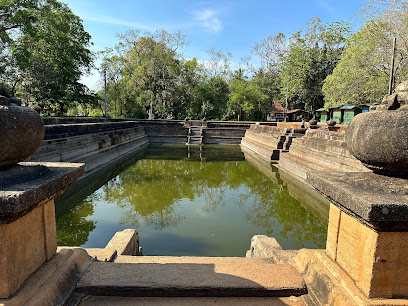
Vessagiriya | වෙස්සගිරිය - අනුරාධපුරය
Explore the tranquil beauty and rich history of Vessagiriya, a stunning Buddhist temple complex in Anuradhapura, Sri Lanka.
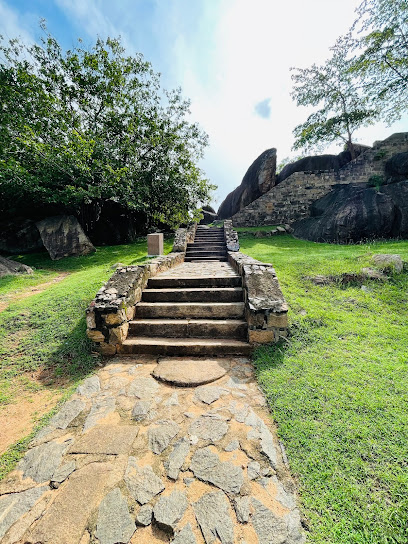
Archaeological Museum, Anuradhapura
Explore the rich history of Sri Lanka at the Archaeological Museum in Anuradhapura, showcasing ancient artifacts and cultural treasures.
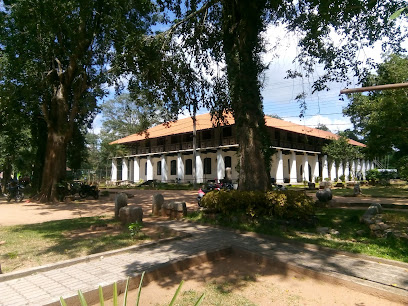
Dalada Maligawa Anuradhapura - අනුරාධපුර පුරාණ දළදා මාලිගාව
Explore Dalada Maligawa, a historical landmark in Anuradhapura, embodying Sri Lanka's rich Buddhist heritage and architectural wonders.
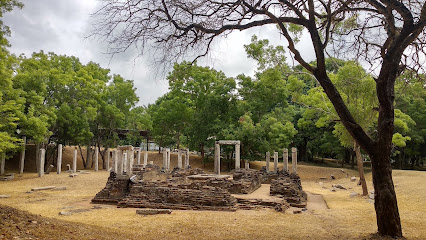
Isurumuniya clock Tower ඉසුරුමුණිය ඔරලෝසු කණුව
Discover the architectural beauty and historical significance of Isurumuniya Clock Tower in Anuradhapura, a must-visit landmark for every traveler.
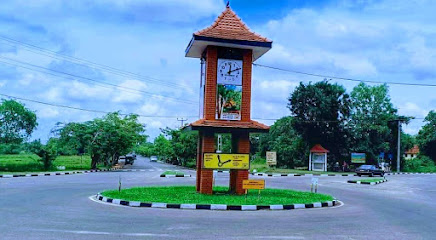
Maha Viharaya, Anuradhapura
Discover the serenity and rich history of Maha Viharaya, a stunning Buddhist temple in Anuradhapura, Sri Lanka's ancient capital.
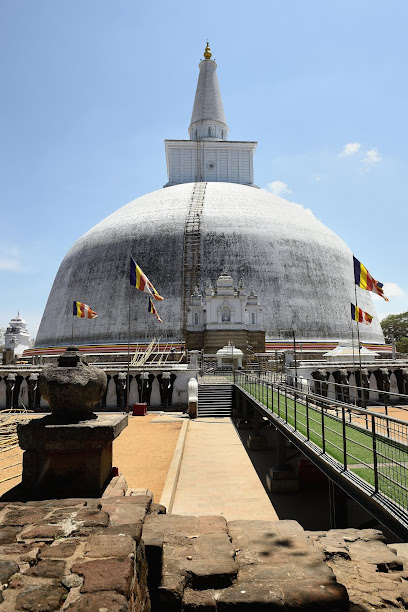
Rathna Prasadaya | මුරගල
Explore Rathna Prasadaya, a captivating historical landmark in Anuradhapura that showcases Sri Lanka's rich heritage and stunning architecture.
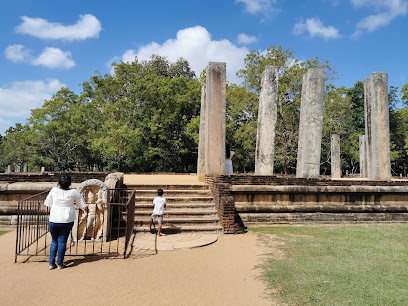
Unmissable attractions to see
Ruwanweli Maha Seya
Experience the tranquility and rich history of Ruwanweli Maha Seya, a remarkable Buddhist stupa in Anuradhapura, Sri Lanka's ancient capital.
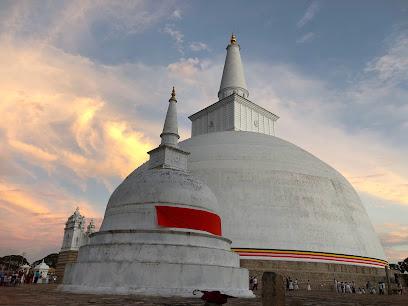
Jaya Sri Maha Bodhi
Discover the sacred Jaya Sri Maha Bodhi in Anuradhapura, a UNESCO World Heritage site that embodies the essence of Buddhist spirituality and Sri Lankan culture.
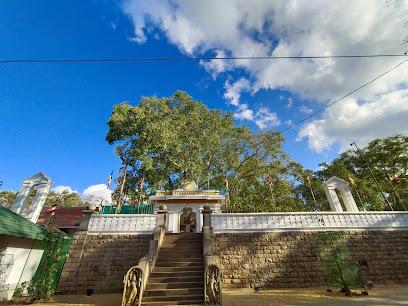
Thuparamaya
Explore Thuparamaya, an ancient Buddhist temple in Anuradhapura, where history and spirituality converge in stunning tranquility.
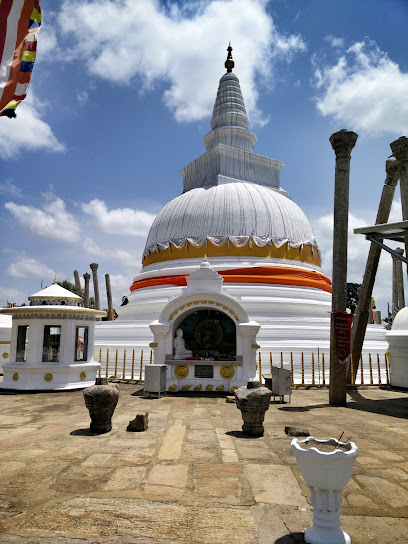
Wilpattu National Park
Discover the unparalleled wildlife and picturesque landscapes of Wilpattu National Park, Sri Lanka's largest national park and a haven for nature lovers.
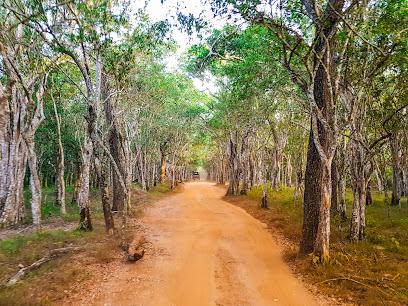
Mirisawetiya
Explore Mirisawetiya, a serene Buddhist temple in Anuradhapura, showcasing stunning architecture and rich historical significance.
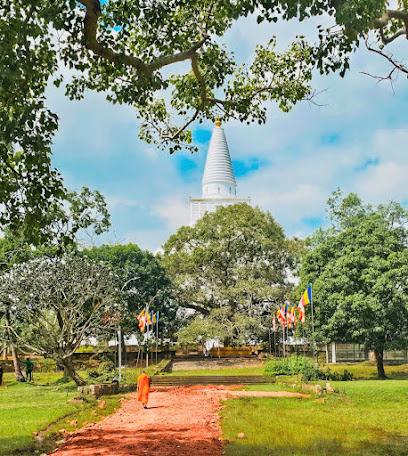
Abhayagiriya
Discover the spiritual heart of Sri Lanka at Abhayagiriya, an ancient Buddhist temple in Anuradhapura, rich with history and stunning architecture.
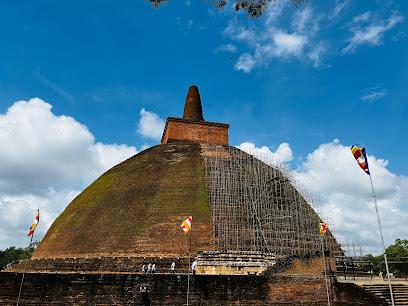
Tantirimale Rajamaha Viharaya - තන්තිරිමලේ රජමහා විහාරය
Explore the serene beauty and rich heritage of Tantirimale Rajamaha Viharaya, a stunning Buddhist temple and archaeological site in Sri Lanka.
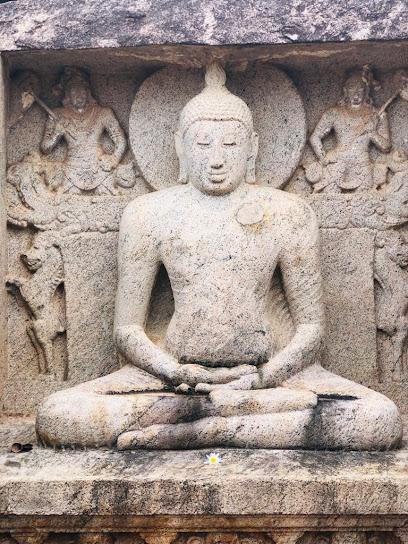
Lankaramaya | ලංකාරාමය
Explore Lankaramaya, a historic Buddhist temple in Anuradhapura, renowned for its majestic stupa and rich cultural heritage.
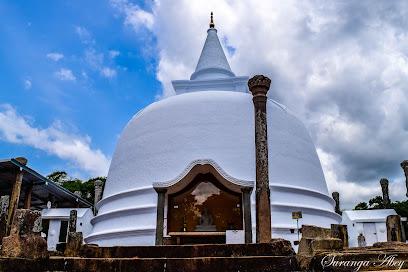
Kala Wewa
Explore the natural beauty of Kala Wewa, a serene reservoir in Sri Lanka, offering breathtaking views and rich biodiversity for an unforgettable experience.
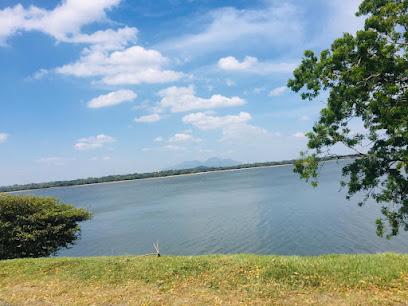
Anuradhapura Moonstone
Discover the exquisite craftsmanship of the Anuradhapura Moonstone, a historical landmark that reveals Sri Lanka's rich cultural heritage.
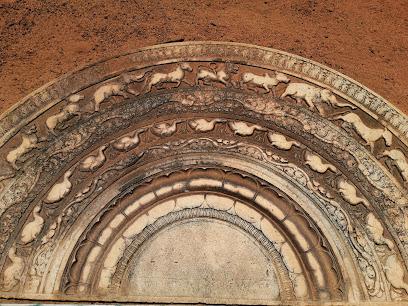
Ranmasu Uyana (Royal Park)
Discover the serene beauty and rich history of Ranmasu Uyana, an ancient royal park in Anuradhapura, Sri Lanka, perfect for nature lovers and history enthusiasts.
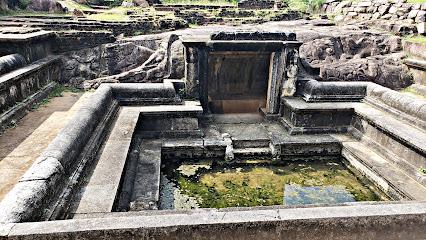
Hurulu Eco Park - Wild Elephant Safari
Explore Hurulu Eco Park for an unforgettable wildlife safari experience in the heart of Sri Lanka, home to majestic elephants and diverse wildlife.
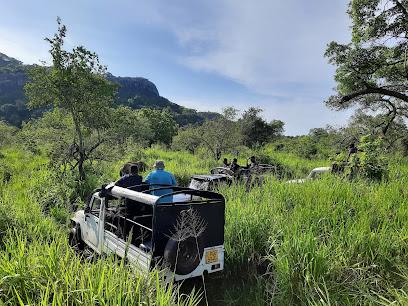
Yapane handiya යාපනේ හංදිය අනුරාධපුර
Discover the serene beauty and rich cultural heritage at Yapane Handiya, an essential stop for tourists in Anuradhapura, Sri Lanka.
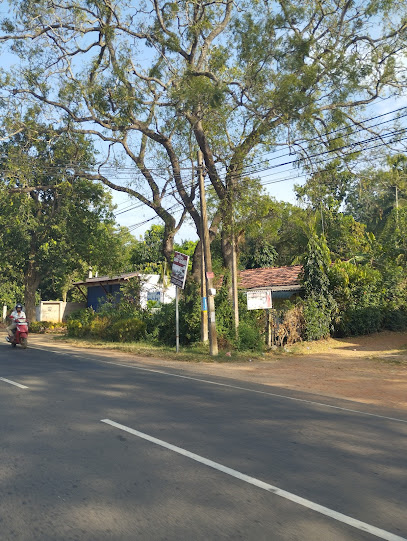
Mihintale
Explore Mihintale, the sacred mountain peak of Sri Lanka, where spirituality meets stunning landscapes and rich history.
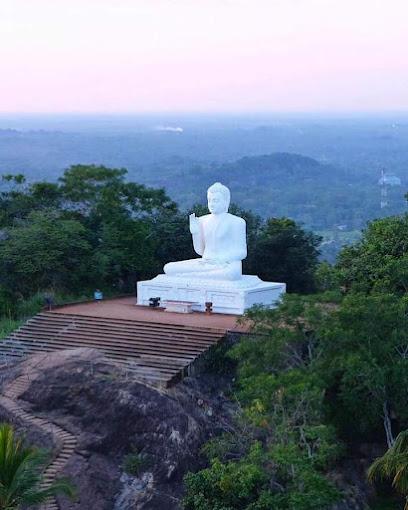
අභයගිරි කෞතුකාගාරය - Abhayagiri Museum
Explore the ancient wonders of the Abhayagiri Museum in Anuradhapura, a gateway to Sri Lanka's Buddhist heritage and rich history.
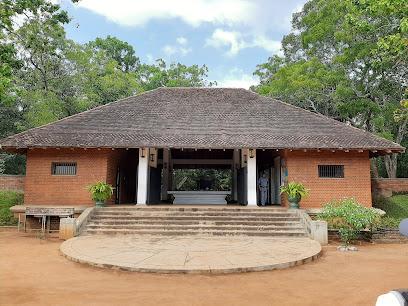
Essential places to dine
Golden Mango Indian Restaurant
Experience authentic Indian cuisine at Golden Mango Restaurant in Anuradhapura - where every dish is crafted with passion and flavor.
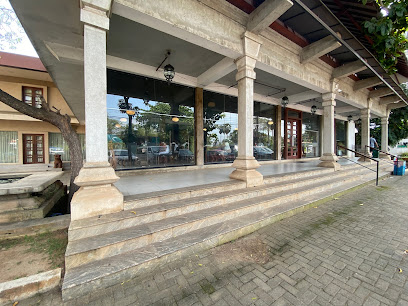
Seedevi Family Restaurant
Discover authentic Sri Lankan flavors at Seedevi Family Restaurant in Anuradhapura – where every dish tells a story.
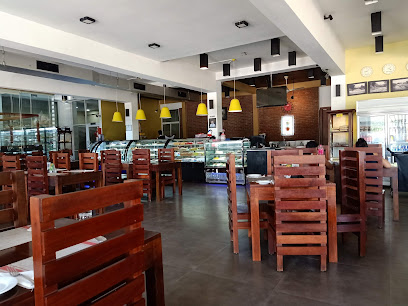
Ambula Restaurant Anuradhapura ඇඹුල අනුරාධපුර
Experience authentic Sri Lankan cuisine at Ambula Restaurant in Anuradhapura - where tradition meets flavor.
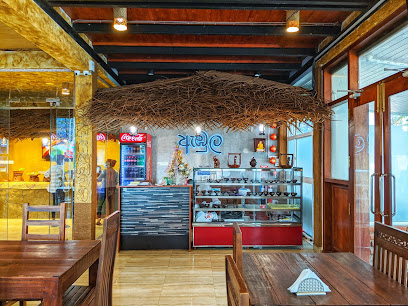
Casserole Restaurant
Discover the flavors of Sri Lanka at Casserole Restaurant in Anuradhapura – where local cuisine meets exceptional service.
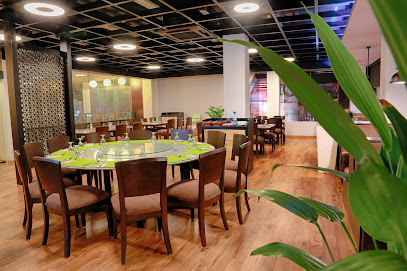
The Walkers Restaurant
Experience the vibrant flavors of Sri Lanka at The Walkers Restaurant in Anuradhapura - where local cuisine meets global taste.
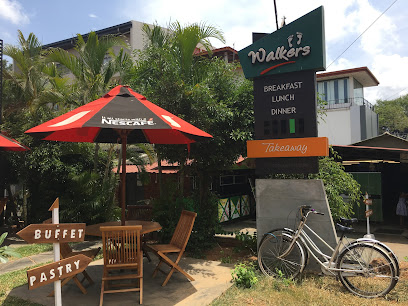
Alankulama Casserole Restaurant Bank Side
Experience traditional Sri Lankan flavors at Alankulama Casserole Restaurant with scenic river views and authentic dishes served in charming casseroles.
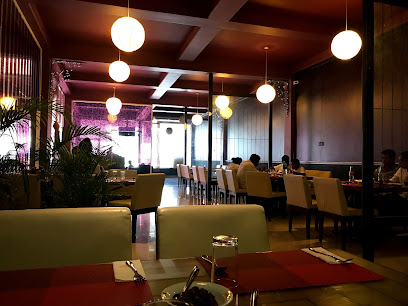
Myburger Family Restaurant
Experience the best burgers and local flavors at Myburger Family Restaurant in Anuradhapura – where taste meets tradition!
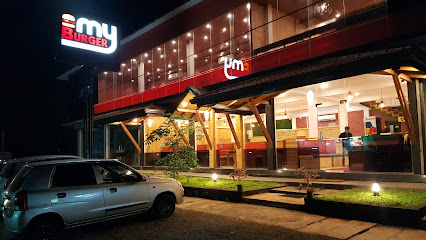
Gemi Gedara Restaurant Anuradhapura
Experience the best of Sri Lankan and Chinese cuisine at Gemi Gedara Restaurant in Anuradhapura.
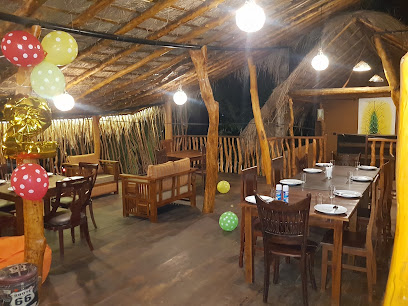
Rangiri Restaurant - Anuradhapura
Discover authentic Sri Lankan flavors at Rangiri Restaurant in Anuradhapura - where every dish tells a story.
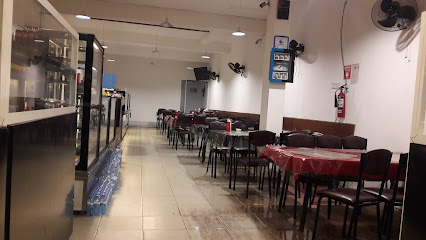
Rangiri Restaurant
Experience authentic Sri Lankan flavors at Rangiri Restaurant in Anuradhapura – a culinary delight for every traveler.
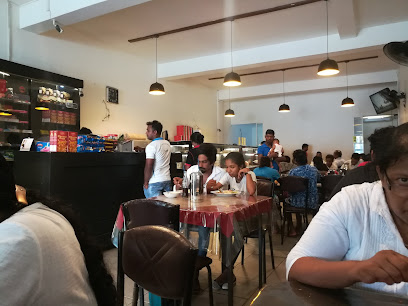
Rasa Gedara ( The House Of Taste )
Discover the vibrant flavors of Sri Lanka at Rasa Gedara - a buffet paradise in Anuradhapura offering diverse culinary delights.
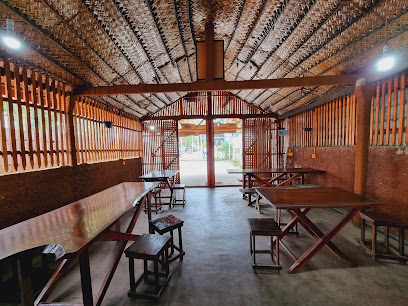
Bro Restaurant
Discover family-friendly dining at Bro Restaurant in Anuradhapura - where local flavors meet international cuisine in a warm atmosphere.
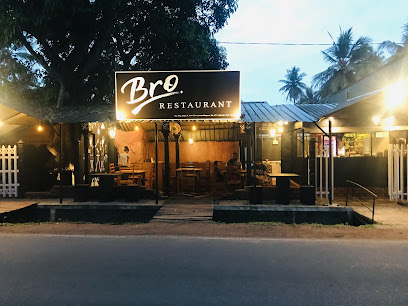
Palhena Restaurant
Experience authentic Sri Lankan flavors at Palhena Restaurant in Anuradhapura, where every meal tells a story.
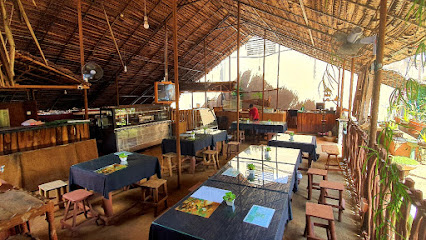
Hela Sathkaara Bojun Hala - හෙල සත්කාර බොජුන් හල
Experience authentic Sri Lankan flavors at Hela Sathkaara Bojun Hala - where tradition meets taste in Anuradhapura.
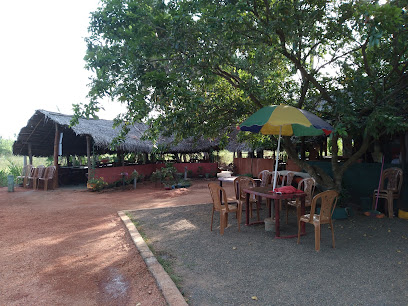
Salgado Hotel and Bakery
Experience authentic Sri Lankan cuisine and delightful baked goods at Salgado Hotel and Bakery in Anuradhapura.
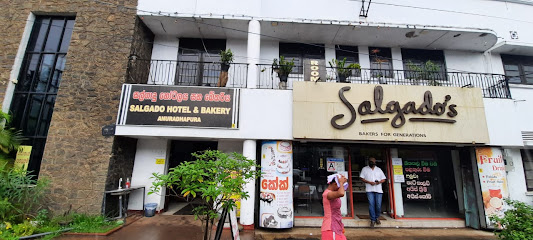
Markets, malls and hidden boutiques
CIB Shopping Center - Anuradhapura
Explore the vibrant CIB Shopping Center in Anuradhapura for trendy clothing and a unique shopping experience that reflects local culture.
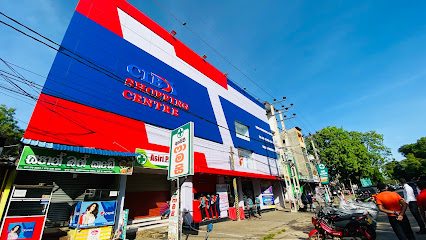
ASB Fashion
Discover the vibrant fashion scene at ASB Fashion in Anuradhapura, where style meets tradition in a premier shopping destination.

Nirmani Dress Point
Explore the elegance of Sri Lankan fashion at Nirmani Dress Point, where traditional meets contemporary in Anuradhapura.
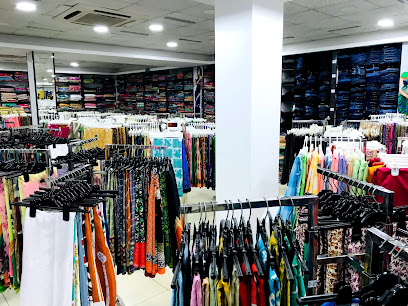
Arpico Daily - Anuradhapura
Experience the vibrant flavors of Sri Lanka at Arpico Daily, Anuradhapura's premier grocery store for local and international delights.

Samudra Book Shop - Anuradhapura
Explore Samudra Book Shop in Anuradhapura, a treasure trove of literature and culture perfect for every book lover visiting Sri Lanka.
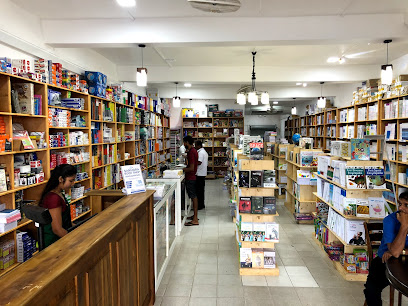
DRESS HUB
Explore DRESS HUB in Anuradhapura for an exceptional selection of trendy women's clothing and dresses, perfect for every occasion.
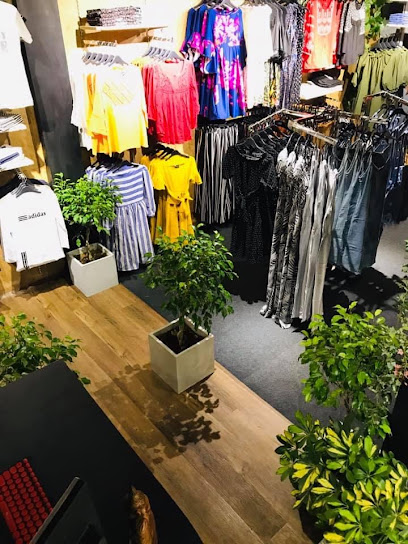
G & G
Discover the latest fashion trends at G & G in Anuradhapura, where style meets quality in a welcoming shopping environment.

Eiffel Complex
Discover stylish apparel and accessories at Eiffel Complex, a must-visit clothing store in Anuradhapura's bustling shopping scene.
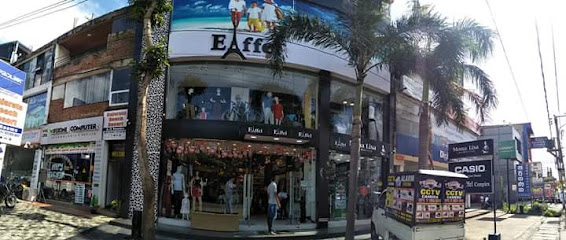
GIFT CEYLON
Explore Gift Ceylon in Anuradhapura for unique gifts, exquisite chocolates, and delightful cakes, a true taste of Sri Lankan craftsmanship.
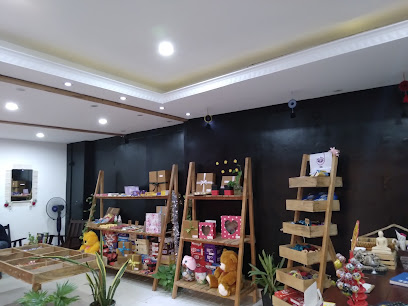
The Factory
Discover unique and stylish clothing at The Factory in Anuradhapura, where local culture meets contemporary fashion!

Diliganz Fashion | Anuradhapura
Discover unique Sri Lankan fashion at Diliganz Fashion, Anuradhapura's premier clothing store, blending modern style with local charm.
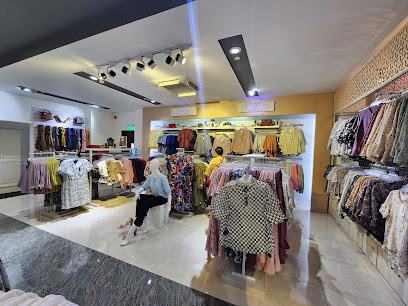
Volls
Discover unique fashion at Volls in Anuradhapura, blending local craftsmanship with contemporary styles for an unforgettable shopping experience.
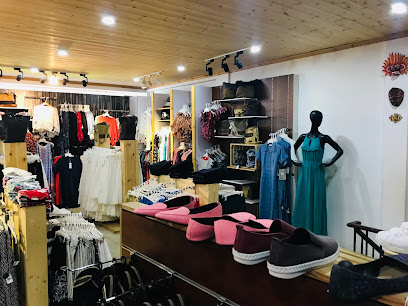
Araliya Gift Center
Explore the rich craftsmanship of Sri Lanka at Araliya Gift Center, a treasure trove of unique gifts and souvenirs in Anuradhapura.
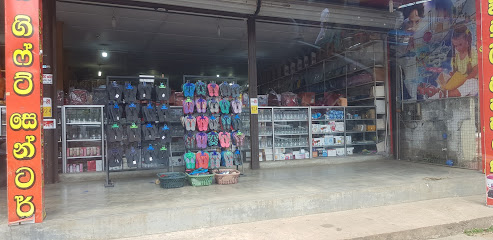
Lovers City Center
Explore Lovers City Center in Anuradhapura for a delightful shopping experience that showcases local culture and modern retail charm.
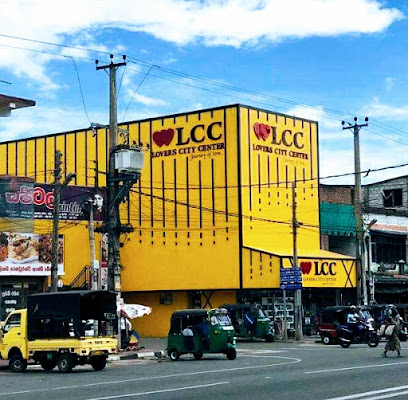
Hanger
Discover stylish ladies' wear at Hanger in Anuradhapura, where fashion meets local culture in an unforgettable shopping experience.
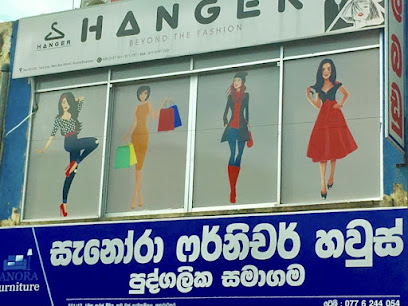
Essential bars & hidden hideouts
Bamboo restaurant juice bar anuradhapura
Discover the refreshing flavors of Sri Lankan cuisine at Bamboo Restaurant, the perfect culinary escape in Anuradhapura's vibrant landscape.
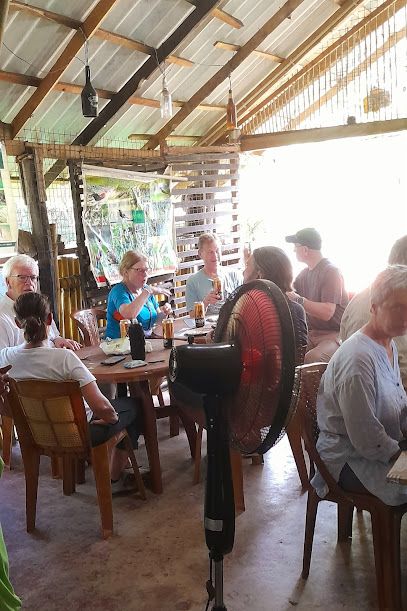
Avasta resturant and bar
Discover the flavors of Sri Lanka at Avasta Restaurant and Bar, where culinary excellence meets a tranquil ambiance in Anuradhapura.
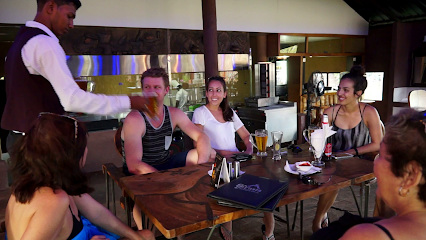
Mihira Wine Stores
Experience the delightful wines of Mihira Wine Stores in Anuradhapura, a charming wine bar perfect for unwinding after exploring the city's ancient heritage.
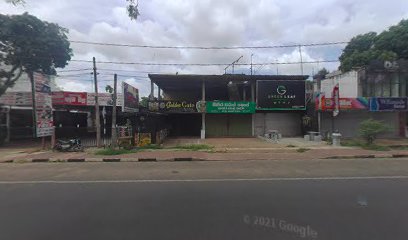
Yummy Restaurant & Juice Bar
Experience the vibrant flavors of Sri Lanka at Yummy Restaurant & Juice Bar, a top destination for fresh juices and delicious local cuisine.
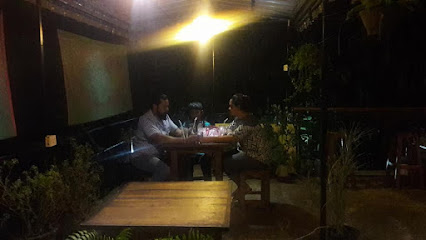
Millenium Restaurant & Bar
Discover a delightful blend of local flavors and serene ambiance at Millenium Restaurant & Bar in Anuradhapura, Sri Lanka.
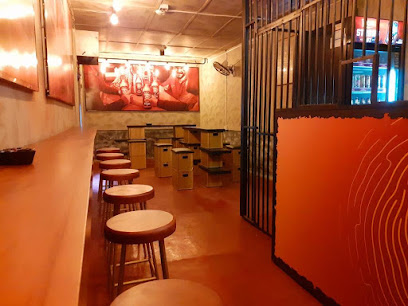
D night restaurant
Experience the rich flavors of Sri Lankan cuisine at D Night Restaurant, a vibrant bar and dining spot in Anuradhapura.
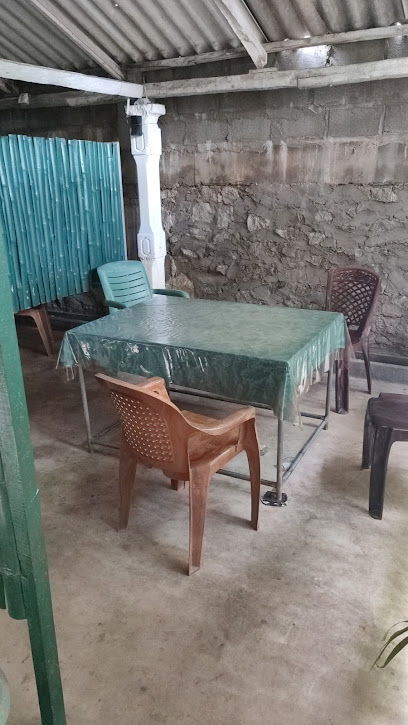
Prasanna Wine Stores
Experience the charm of Prasanna Wine Stores, a cozy bar in Anuradhapura offering a fantastic selection of local wines and a warm atmosphere.
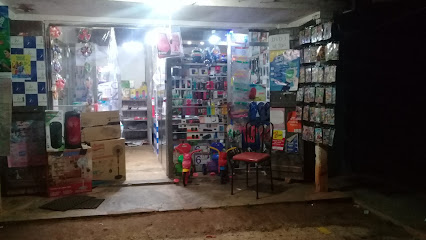
De Best Tourist Restaurant
Discover the culinary delights of Sri Lanka at De Best Tourist Restaurant in Anuradhapura, where authentic flavors meet warm hospitality.
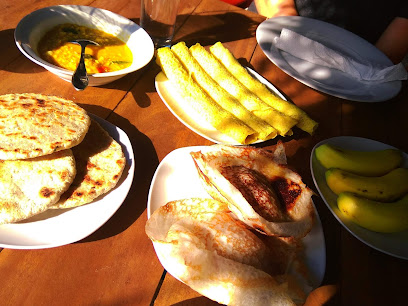
Juice Bar
Discover the best of tropical refreshment at Anuradhapura's Juice Bar, where every drink is a burst of flavor and vitality.
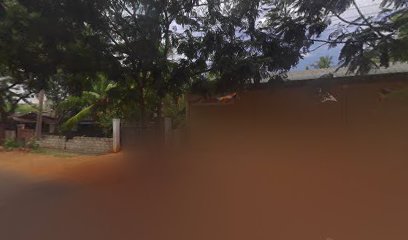
Bar & Resturant
Discover the vibrant flavors of Anuradhapura at this popular bar and restaurant, perfect for tourists seeking relaxation and local cuisine.
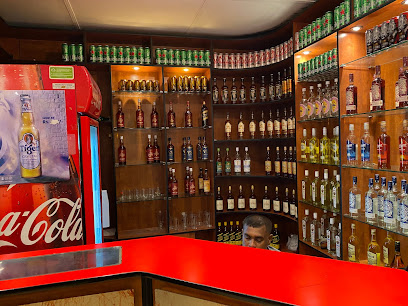
Bar
Savor authentic Sri Lankan cuisine in Anuradhapura's vibrant restaurant, where every dish tells a story of rich culinary traditions.
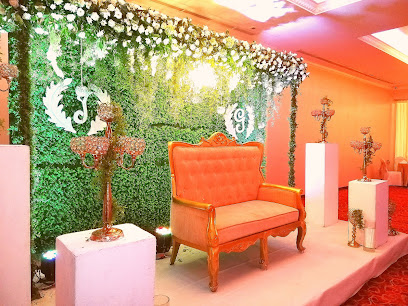
Danawwa Restaurant & Juice Bar
Experience the vibrant flavors of Sri Lankan cuisine at Danawwa Restaurant & Juice Bar in Anuradhapura, where fresh ingredients meet friendly hospitality.

CHILL (Restaurant and Sport corner)
Discover Chill in Anuradhapura: A lively bar and sports corner where excitement and relaxation meet for the ultimate social experience.
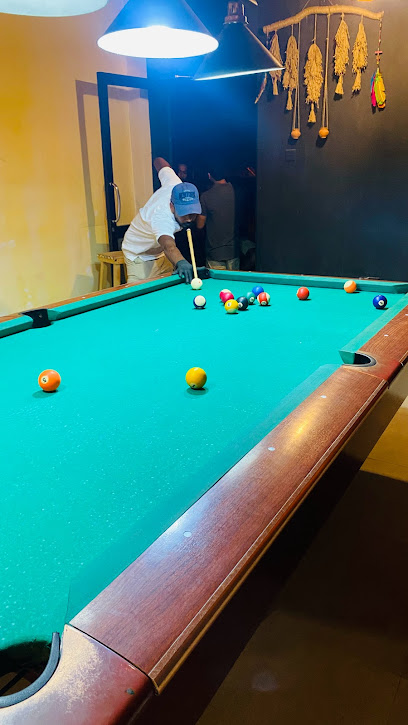
Restaurant & bar
Discover Anuradhapura's nightlife at its best, where music, dance, and drinks create an unforgettable experience.
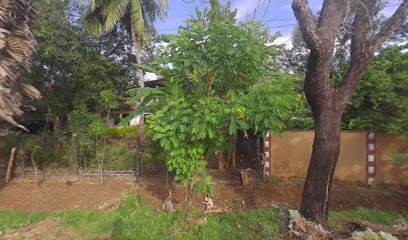
Local Phrases
-
- Helloහායි
[haai] - Goodbyeවවුන්න
[wavunna] - Yesඔව්
[ov] - Noනෑ
[nā] - Please/You're welcomeකරන්න
[kannna] - Thank youඔබට ස්තූතියි
[obat sthuthiyi] - Excuse me/Sorryසමාවෙනි
[samāwēni] - How are you?ඔයා කොහද?
[oayā kohada?] - Fine. And you?සහෝදා. ඔයා?
[sahōdā. oayā?] - Do you speak English?ඔයා ඉංග්රීසි කතා කරනවාද?
[oayā iṁgrīsi kathā karanvāda?] - I don't understandමම අතිනවද?
[mama atinavada?]
- Helloහායි
-
- I'd like to see the menu, pleaseකරුණාකොළ දැක්කා දෙන්න
[karunākol dēkka denna] - I don't eat meatමම මස් කන්නේද?
[mama mas kannēda?] - Cheers!සුරතලා
[surathalā] - I would like to pay, pleaseකරුණාකොළ ගෙවන්න
[karunākol gēvanna]
- I'd like to see the menu, pleaseකරුණාකොළ දැක්කා දෙන්න
-
- Help!උක්කනවා
[ukkanavā] - Go away!යන්න
[yanna] - Call the Police!පොලීසයට ඇමතුම්කරනවා
[pōlīsayat amathumkaranavā] - Call a doctor!වෛරසට ඇමතුම්කරනවා
[varasat amathumkaranavā] - I'm lostමම මොකෙද්දේ
[mama mokēdā] - I'm illමම අයදුම්කරනවා
[mama ayadumkaranavā]
- Help!උක්කනවා
-
- I'd like to buy...මම ... මිලේ ගන්නවාද?
[mama ... mile gannavāda?] - I'm just lookingමම දැන් පටනවාද
[mama dēna patanavāda] - How much is it?එය කොහෙද?
[eya koheda?] - That's too expensiveඑය වේගයාමද?
[eya vēgayāmada?] - Can you lower the price?මිල අස්වනවාද?
[mila aswanavāda?]
- I'd like to buy...මම ... මිලේ ගන්නවාද?
-
- What time is it?කොහෙද?
[koheda?] - It's one o'clockඑකට
[ekata] - Half past (10)දාවල
[dāwala] - Morningඋදේ
[udē] - Afternoonපසළ
[pasala] - Eveningවැනි
[wani] - Yesterdayඊයේ
[īyē] - Todayඅද
[ada] - Tomorrowහෙට
[heta] - 1එක
[eka] - 2දෙක
[dēka] - 3තුන
[thuna] - 4හතල්
[hathal] - 5පහ
[paha] - 6හය
[haya] - 7හත
[hatha] - 8අට
[ata] - 9නය
[naya] - 10දහ
[daha]
- What time is it?කොහෙද?
-
- Where's a/the...?... කොට්ඨාද?
[kotta da?] - What's the address?ලිපිනය කොට්ඨාද?
[lipinaya kotta da?] - Can you show me (on the map)?මාපාවට පෙන්වනවාද?
[māpāwat penvanavāda?] - When's the next (bus)?ඊළඟට කොහෙනවා?
[īlagat kohenvā?] - A ticket (to ....)පැය එකක් (... යට)
[pāya ekak (yata)]
- Where's a/the...?... කොට්ඨාද?
History of Anuradhapura
-
Anuradhapura, one of the ancient capitals of Sri Lanka, was founded by King Pandukabhaya in the 4th century BCE. The city was strategically established on the banks of the Malwatu Oya, which provided a vital water source and facilitated trade and agriculture.
-
King Devanampiya Tissa, who reigned from 307 BCE to 267 BCE, is celebrated for establishing Buddhism in Sri Lanka. Under his rule, the city saw the construction of the Mahavihara monastery and the Thuparamaya, the first Buddhist stupa in Sri Lanka, marking a significant cultural and religious transformation.
-
In 288 BCE, the sacred Bodhi tree, a sapling from the original tree under which Siddhartha Gautama attained enlightenment, was brought to Anuradhapura by Sangamitta Theri, the daughter of Emperor Ashoka of India. Planted in the Mahamevnawa Park, the Jaya Sri Maha Bodhi is considered one of the oldest trees with a recorded history in the world.
-
King Dutugemunu reigned from 161 BCE to 137 BCE and is renowned for uniting the island under his rule after defeating the Chola King Elara. His contributions to Anuradhapura include the construction of the Ruwanwelisaya stupa, an architectural marvel and one of the most important religious sites in Sri Lanka.
-
Anuradhapura is famed for its advanced irrigation systems, which were developed to support agriculture and sustain the large population. The city boasts several enormous reservoirs, or 'tanks,' such as the Abhayagiri and Jethawana tanks, which exemplify the ingenuity and engineering prowess of its ancient inhabitants.
-
King Mahasen, who ruled from 276 CE to 303 CE, is often credited with ushering in a golden age for Anuradhapura. He initiated the construction of the massive Jethawana Stupa, one of the tallest ancient structures in the world, and further expanded the city's irrigation network, enhancing its agricultural productivity.
-
Anuradhapura's decline began in the 10th century CE due to repeated invasions from South India. By the 11th century, the city was abandoned after the capital was moved to Polonnaruwa. The once-thriving metropolis gradually transformed into a dense jungle, preserving its ruins for centuries.
-
In the 19th century, British colonial explorers rediscovered Anuradhapura's ancient ruins. Systematic archaeological excavations have since unearthed its rich history and cultural heritage, revealing intricate carvings, stupas, and artifacts that offer a glimpse into the city's glorious past.
Anuradhapura Essentials
-
Anuradhapura is located in the North Central Province of Sri Lanka. The nearest international airport is Bandaranaike International Airport in Colombo, approximately 180 kilometers away. From Colombo, you can take a train, bus, or taxi to Anuradhapura. The train journey offers a scenic route and takes about 4-5 hours. Alternatively, buses operate frequently from the Colombo central bus terminal and take around 5-6 hours. Taxis are more expensive but provide a direct and comfortable ride.
-
Anuradhapura is a sprawling city, and while many key attractions are within walking distance of each other, it is advisable to use transportation for longer distances. Local tuk-tuks are a convenient and affordable way to get around. Bicycles can also be rented for exploring the ancient city at a leisurely pace. Public buses operate within the city and connect to surrounding areas, but they can be crowded and less frequent.
-
The official currency in Sri Lanka is the Sri Lankan Rupee (LKR). Credit cards are accepted in most hotels, restaurants, and larger shops, but it is advisable to carry cash for smaller establishments and local markets. ATMs are available throughout Anuradhapura, so withdrawing cash shouldn't be an issue. However, it’s wise to have sufficient cash on hand for rural areas and small vendors.
-
Anuradhapura is generally a safe destination for tourists. However, it is important to take standard safety precautions. Avoid walking alone at night, especially in poorly lit areas. Petty crimes such as pickpocketing can occur in crowded places, so keep your belongings secure. There are no specific high-crime areas targeting tourists, but staying vigilant and aware of your surroundings is always advisable.
-
In case of emergency, dial 119 for police assistance and 110 for medical emergencies. The local police station and hospitals are available in Anuradhapura. It is recommended to have travel insurance that covers medical emergencies. For minor health issues, there are numerous pharmacies where you can purchase over-the-counter medications.
-
Fashion: Do dress modestly, especially when visiting religious sites. Avoid wearing revealing clothing. Religion: Do respect local customs and traditions. Always remove your shoes and cover your head when entering temples. Public Transport: Do be respectful and give up your seat to elderly passengers. Don’t eat or drink on public transport. Greetings: Do greet people with a smile and a slight bow. A traditional greeting involves placing your palms together in a prayer-like gesture. Eating & Drinking: Do try local delicacies and accept food offerings graciously. Don’t refuse hospitality, as it is considered impolite.
-
To experience Anuradhapura like a local, visit the local markets where you can buy fresh produce and traditional Sri Lankan goods. Engage with locals, as they are often friendly and willing to share stories about the city's history and culture. Don’t miss visiting the sacred Bodhi tree, one of the oldest trees in the world. For a unique experience, attend a local puja (prayer ceremony) at one of the ancient temples.
Trending Landmark in Anuradhapura
-
Ruwanweli Maha Seya
-
Jaya Sri Maha Bodhi
-
Thuparamaya
-
Isurumuni Royal Temple
-
Ranmasu Uyana (Royal Park)
-
Star Gate - Ranmasu Uyana
-
Jetavanarama Museum
-
Perimiyankulama Stone Bridge
-
Twin ponds (කුට්ටම් පොකුණ)
-
Vessagiriya | වෙස්සගිරිය - අනුරාධපුරය
-
Archaeological Museum, Anuradhapura
-
Dalada Maligawa Anuradhapura - අනුරාධපුර පුරාණ දළදා මාලිගාව
-
Isurumuniya clock Tower ඉසුරුමුණිය ඔරලෝසු කණුව
-
Maha Viharaya, Anuradhapura
-
Rathna Prasadaya | මුරගල
Nearby Cities to Anuradhapura
-
Things To Do in Sigiriya
-
Things To Do in Polonnaruwa
-
Things To Do in Trincomalee
-
Things To Do in Kandy
-
Things To Do in Negombo
-
Things To Do in Jaffna
-
Things To Do in Nuwara Eliya
-
Things To Do in Colombo
-
Things To Do in Ella
-
Things To Do in Bentota
-
Things To Do in Hikkaduwa
-
Things To Do in Galle
-
Things To Do in Unawatuna
-
Things To Do in Mirissa
-
Things To Do in Matara













